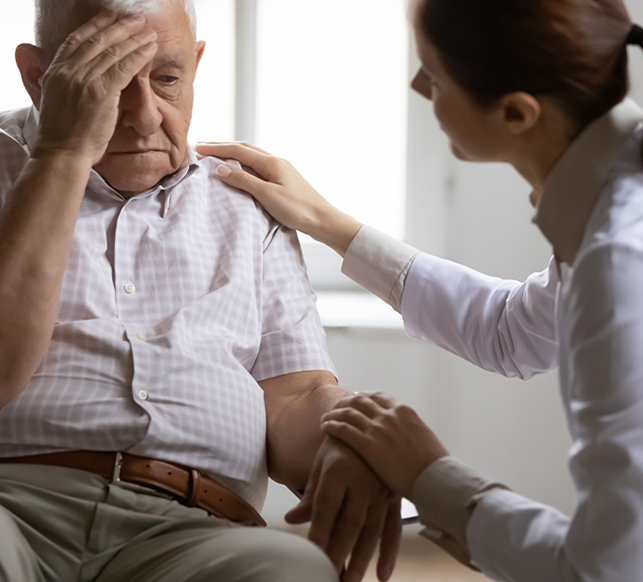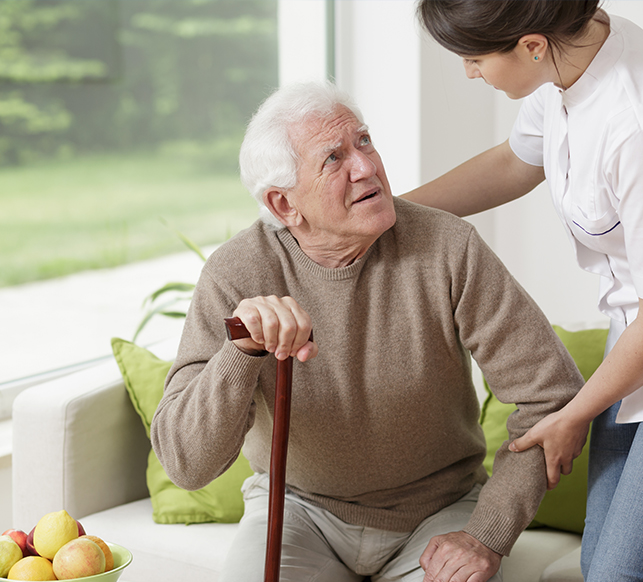Parkinson’s

Parkinson’s is often degenerative and there’s no way of knowing what the future holds for those dealing with this disease. The disease can cause several symptoms, including stiffness, shaking, and the inability to walk properly. With our healthcare services for Parkinson’s, we can ensure you receive care as and when you need it. It is possible to live independently, even with Parkinson’s and many do. Ensuring you are not isolated is vital and participating in activities that will keep both your body and mind functioning is important. The last thing you want to do is stop the activities you enjoy, as this could be detrimental to both your physical and mental wellbeing. Staying active and exercising as much as possible will help keep the body flexible, and it can slow down the progression of the disease. Ensuring your home is safe can help you to live independently, including widening space available to you and other resources that might help you manoeuvre around the home easily.
Symptoms of parkinson’s

Helping our clients to live with parkinson’s at every stage
At Harmony Healthcare, we know that the effects of Parkinson’s can change and there may be certain times of the day that are more difficult than others. For instance, we can accommodate overnight care, if this is a time that is particularly troublesome and dangerous for you. If there are times when your condition is worse than others, our healthcare staff are available for your short-term care needs too.
Our Homecare service for individuals living with parkinson’s
We know that every individual suffering from Parkinson’s experiences it differently, and while some of our clients are able to live almost completely independent, others need assistance. Quite often the level of assistance is determined by whether they have a family to help out.
At Harmony Healthcare, we provide a tailored care service for client’s with Parkinson’s, and we ensure the care plan is just right for them.
Some of the services we can offer include
Meal and food preparation
we will provide you with a carer who will be able to prepare meals for you, and if require, help with feeding. This may be something you require every day or it may be short term when your family are unable to help. We can offer a flexible service, catering to your needs.
Personal care
We completely understand that the prospect of receiving personal care can be worrying and stressful, but we will also ensure this is done in a compassionate and respectful manner. Our personal care can include bathing, and personal hygiene. We know that people with Parkinson’s often experience times when their symptoms worse, so while you may not need this level of care every day, you might need it at a specific time, and in which case, we can offer emergency care. All you need to do is call us , and we will ensure a carer is on hand to help with your personal care needs.
Nurse-led care
All of our services are nurse-led, and carers receive training to enhance their clinical skills, so that they are in a position to be able to provide the right level of care for complex conditions. It is vital that our carers do not just take the same approach with our client’s, as every condition is different, and it is important to us that the level of care is right for the condition. Our carers are always supported by a registered nurse, who is there to advise on any clinical interventions that may be necessary.
Administering medication
Our carers are also trained on administering medication, as this is vital for ensure the health and wellbeing of our clients suffering from Parkinson’s. They will always ensure you receive the right medication, at the right time.
Mobility
One of the major issues with Parkinson’s is the mobility problems it causes. This can make falls more likely, and the falls can lead to serious medical problems. Although most people don’t die from Parkinson’s alone, they often die from the issues it causes, so we need to ensure that you are kept safe at all times. Our carers can help with mobility whenever this is required. For instance, if you want to ensure your safety during the night, they can provide overnight care
Case study for client with parkinson’s
Joe is 50 years’ old. He has a family of 4 children and his wife, who looks after him. Joe is fiercely independent, and enjoys travelling and socialising. He is mobile, although his movement is restricted and he experiences constant tremors. His family provide a great level of care to him, but they all need to work and he feels guilty about how much he relies on them. Joe has no problem with his mind and is more than capable of making decisions. He called us up himself and requested that we discuss a care package that is flexible to suit him. He wanted to know he could call on us for respite care for his family, whenever he felt they needed some space, and that we could also provide some overnight care as this was often the most difficult time for him, and he wanted to give his family a break at least twice a week